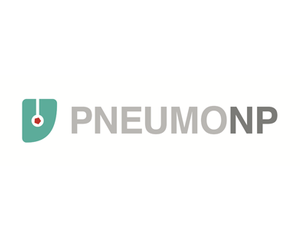PneumoNP
Antimicrobial resistance (AMR) to antibiotics is a global public health concern and the EU Commission considers the development of new effective antimicrobials or alternatives for treatment a current priority. Early detection of the infection source combined with the development of effective therapies to treat multi-drug resistant (MDR) bacteria caused infections will definitely radically improve the healing process of patients and avoid complications in the hospital.
CIDETEC coordinates the collaborative research project PneumoNP, funded under FP7-NMP EC Call and started in 2014. The Project aims at the development of a theragnostic system for the treatment of Gram-negative bacterial infections of the lung, with focus on the bacterium Klebsiella pneumoniae. The PneumoNP consortium consists of 11 partners, from 6 EU member states.
In particular, in the frame of PneumoNP CIDETEC is preparing and characterizing special types of biocompatible nanomaterials, namely single-chain polymer nanoparticles (SCPN) based on dextran (proprietary technology), in order to host the new antimicrobial peptides (AMPs) delivered by members of the consortium. The nanoparticles can be manipulated to generate enormously versatile drug-carrying systems with the following characteristics:
i) Targeted delivery of drugs to their specific site of action in the human body, decreasing the risk of side-effects and increasing the therapeutic effect;
ii) Improved solubility and bioavailability of the drug;
iii) Facilitation of drug internalization in lungs and infected cells;
iv) Simultaneous loading of different drugs and imaging agents to combine synergetic therapy with diagnostic accuracy.
The efficacy against Klebsiella pneumoniae of the novel nanosystems (SCPN + AMPs) is being tested in vitro and in vivo in order to check their performance respect to the free AMPs. The development of such nanosystems is part of a more general strategy of technological offer of CIDETEC focused on a translational approach for the exploitation of this technology for drug delivery (Barnekin- Ekinzaile project funded by SPRI and DFG).
The project will end at the end of 2017 and it is expected to generate:
– a new inhalable drug system composed of a nanotherapeutic system combining an antimicrobial peptide or active pharmaceutical ingredient (API) and a nanocarrier;
– a new aerosol technology specifically developed for the nanotherapeutic system;
– an innovative efficiency-efficacy test to follow-up the treatment;
– a new diagnostic kit for the rapid and multiplex identification of bacteria causing respiratory infections.


Inicio: 01 | 01 | 2014
Fin: 31 | 12 | 2017
Presupuesto: 5.700.000 €
Financiador

This project has received funding from the European Union’s Seventh Framework Programme for research, technological development and demonstration under grant agreement no 604434.
Sectores
- Industria farmacéutica
Campos tecnológicos
- There are no technological fields












